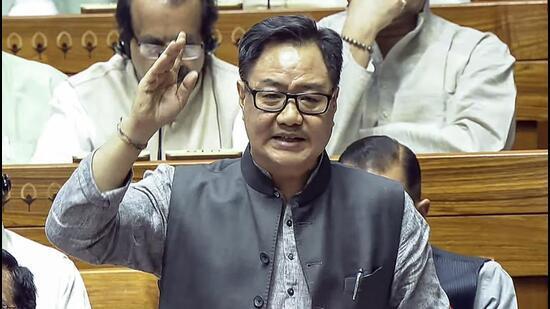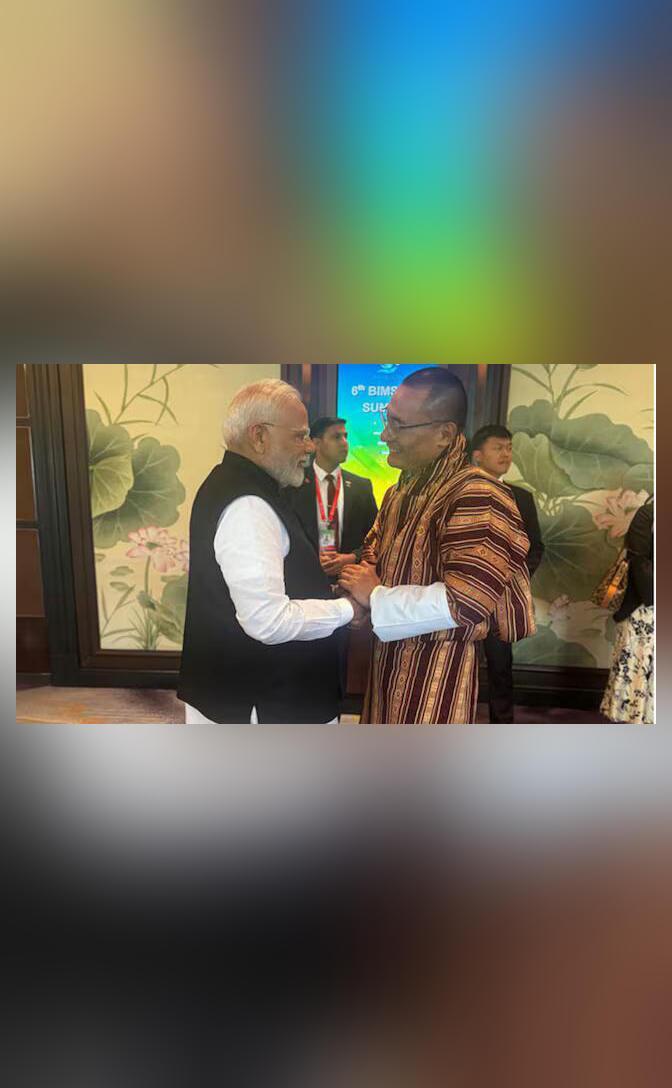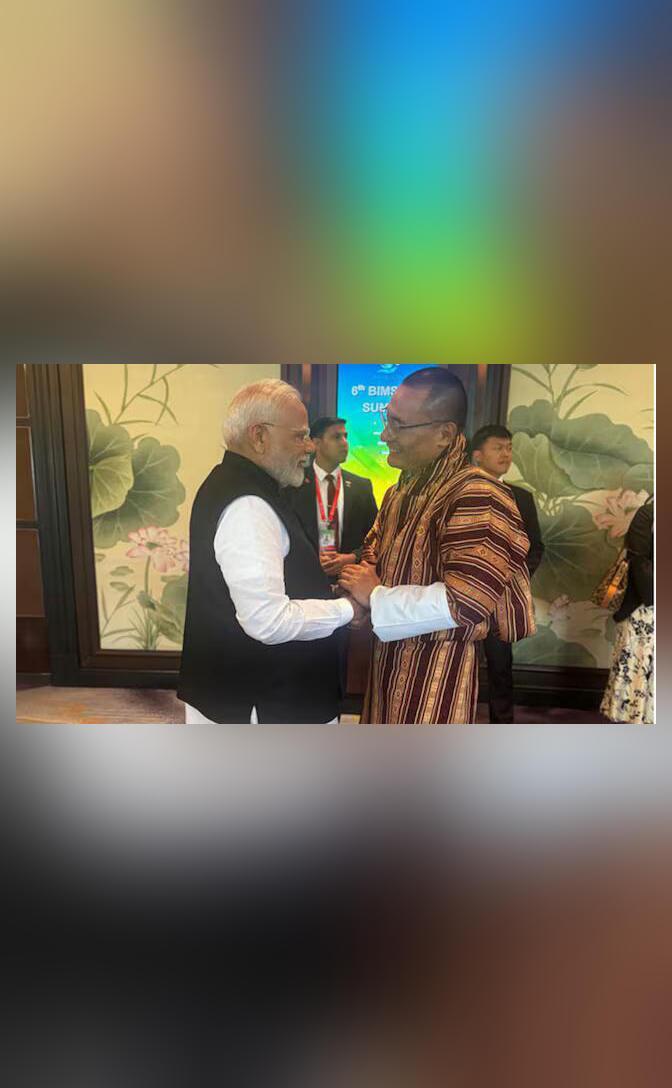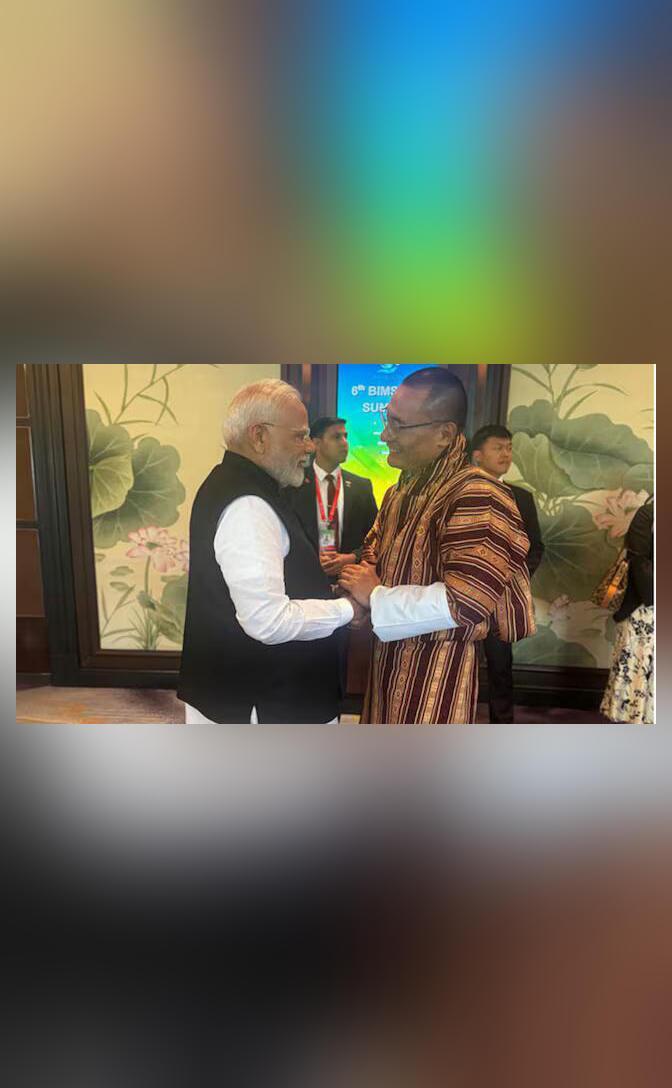
Opposition Creates Confusion & Leaves House: Rijiju in Rajya Sabha
The ongoing debate in the Rajya Sabha has taken a new turn with Union Minister Kiren Rijiju criticizing senior members of the opposition for creating confusion and raising issues, only to walk away without staying back to listen to the replies. The minister’s remark came during the discussion on the Waqf (Amendment) Bill, which has been a topic of intense debate in the Upper House.
Rijiju’s outburst was directed at senior Rajya Sabha member, Kapil Sibal, who had earlier compared the properties of Waqf bodies with those of other religious bodies. The minister claimed that Sibal’s statement created confusion and was an attempt to mislead the House.
“The senior member (Kapil Sibal) has created confusion, and now he is not willing to stay back to listen to the reply,” Rijiju said, his voice filled with frustration. “This is not the way to conduct a debate. It’s not about scoring brownie points, but about having a meaningful discussion.”
Rijiju’s criticism of Sibal was not limited to his statement on Waqf properties. The minister also accused the senior MP of not being willing to engage in a constructive debate. “A responsible opposition should engage in a healthy debate, raise questions, and then stay back to listen to the replies. But instead, they create confusion and leave the House,” Rijiju said.
The minister’s remarks have sparked a heated debate in the Rajya Sabha, with opposition members accusing Rijiju of trying to suppress their voices. Sibal, in particular, was unapologetic about his statement, claiming that it was his duty to raise questions and seek clarification on the Waqf (Amendment) Bill.
“We are not here to create confusion, but to seek clarity on the bill,” Sibal said. “The minister is trying to suppress our voices, but we will continue to raise our concerns and seek answers.”
The Waqf (Amendment) Bill has been a contentious issue in the Rajya Sabha, with opposition members accusing the government of trying to dilute the powers of Waqf boards. The bill seeks to amend the Waqf Act, 1995, and introduce a new definition of Waqf properties.
The opposition has been critical of the bill, claiming that it will lead to the privatization of Waqf properties and undermine the autonomy of Waqf boards. The government, on the other hand, has argued that the bill is necessary to bring transparency and accountability to the functioning of Waqf boards.
The debate on the Waqf (Amendment) Bill is set to continue in the Rajya Sabha, with both sides refusing to back down. The opposition is determined to stall the passage of the bill, while the government is keen to get it approved.
In the midst of this intense debate, Rijiju’s criticism of Sibal and other opposition members has added a new layer of complexity to the issue. While the minister’s frustration is understandable, his criticism of the opposition’s tactics may have been misplaced.
After all, the opposition has a right to raise questions and seek clarification on a bill that affects a significant section of the population. The government, on the other hand, has a responsibility to respond to these questions and provide clarity on the bill.
In an ideal scenario, the debate on the Waqf (Amendment) Bill should be a constructive one, with both sides engaging in a meaningful discussion and seeking to find common ground. Instead, the debate has devolved into a shouting match, with neither side willing to listen to the other.
As the debate continues, it is essential that the opposition and the government engage in a more constructive and respectful dialogue. The Waqf (Amendment) Bill is an important piece of legislation, and it is essential that it is debated in a manner that is respectful and constructive.



